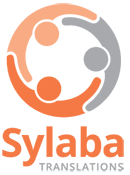What is community translation services?
Community translation is a type of professional translation that involves translating content produced by public/community services for migrant/refugee/asylum seeker communities.
In Australia, when we translate for culturally and linguistically diverse CALD communities, we are usually doing community translations.
What’s so special about community translation services?
Perhaps to answer this question, we’ll have to take a step back and understand what the different types of translation are, and what’s special about each of them.
So, what are the main types of translation done in Australia?
Legal, technical, marketing and community translations.
- Legal – legal translations are usually needed for migration purposes, court cases involving CALD communities, of even something as simple as having a personal will translated.
- Technical – technical translations include all the specialised fields, from software to financial, mining, pharmaceutical, medical…
For legal and technical translations, accuracy is of the outmost importance.
- Marketing – marketing translations often require transcreation. Transcreation grants linguistic liberties for the translator to guarantee that the source and target pieces cause the same effect in the reader.
In Marketing translations, style and cultural knowledge matter the most.
So going back to our previous question, what’s so special about community translation?
Community translation is all about accessibility and cultural appropriateness. Hence why plain language is so important, as is community checking. At Sylaba we also do cultural adaptation, which is a bit like transcreation – having more freedom to make sure we reach our goals for each community group we work with.
If I was to explain this to you in technical terms, in translation studies there are two different approaches to translation:
- Semantic translation
- Communicative translation
Very simply put, when taking a semantic approach, the focus is on being faithful to the source text. In other words, literal.
In a communicative approach, we want to be as idiomatic as possible. Being idiomatic means that our focus in on our audience, not in the writer.
As you can see, having the focus on the target audience doesn’t quite apply to legal or technical translations. In those scenarios, we want total and complete accuracy when conveying the messages. Every word counts.
The Importance of Accessibility and Cultural Appropriateness in Community Translation Services
The importance of accessibility and cultural appropriateness in community translation services lies in ensuring effective communication and understanding within diverse communities.
Accessibility: Community translation aims to bridge language barriers and provide access to information and services for individuals who have limited proficiency in the local language. Translating content into their native languages enables them to fully comprehend and engage with important information, such as healthcare services, government programs, legal rights, education, and more. Accessible translations help empower individuals to make informed decisions and actively participate in society.
Cultural Appropriateness: Cultural factors play a crucial role in effective communication. Community translation goes beyond literal language conversion by considering cultural nuances, beliefs, values, and sensitivities. It ensures that the translated content resonates with the target community, avoids misinterpretation or offense, and maintains cultural authenticity. By adapting the language and tone to align with the community’s cultural context, the translated material becomes more relatable, relaying information in a way that is meaningful and respectful.
Both accessibility and cultural appropriateness enhance the quality and effectiveness of community translations, enabling diverse populations to access information, services, and opportunities, and fostering inclusivity and engagement within society.
Plain Language and Community Checking for Community Translation Services
Plain language and community checking are two important aspects of community translation that contribute to its effectiveness and relevance.
Plain Language: Plain language refers to the use of clear and straightforward language in translations. It involves simplifying complex concepts, avoiding jargon, and using everyday language that is easily understood by the target audience. The goal is to ensure that the translated content is accessible to individuals with varying language proficiency levels, including those with limited education or literacy skills. Plain language makes the information more comprehensible, enabling community members to grasp important messages and instructions accurately.
Community Checking: Community checking involves engaging with members of the target community to review and validate the translated content. It is a collaborative process that ensures the accuracy, cultural appropriateness, and relevance of the translation. Community members with language proficiency and cultural knowledge are involved in reviewing the translated material, providing feedback, and suggesting improvements. This feedback loop helps to identify any potential issues, misunderstandings, or cultural discrepancies in the translation. By involving the community in the checking process, community translators can enhance the quality and appropriateness of the final translated product, making it more effective in meeting the needs of the community.
Both plain language and community checking contribute to the clarity, accuracy, and cultural sensitivity of community translations, making the information more accessible, understandable, and relevant to the target community.
The Gratifying Nature of Translating for the Community
Translating for the community is a highly gratifying endeavor that brings numerous rewards and personal fulfillment. Here are some aspects that highlight the gratifying nature of community translation:
- Making a Difference: Community translation directly impacts individuals who face language barriers and limited access to information and services. By providing them with translated content, you contribute to breaking down these barriers and empowering them to navigate important aspects of their lives more effectively. The ability to make a positive difference in someone’s life by enabling access to crucial information is incredibly rewarding.
- Enhancing Inclusivity: Community translation promotes inclusivity by ensuring that diverse populations have equal access to essential services, rights, and opportunities. By bridging language gaps, you help create a more inclusive society where everyone has a voice and can actively participate. The knowledge that your translations contribute to fostering inclusivity and reducing disparities can be immensely gratifying.
- Cultivating Understanding and Empathy: Through community translation, you gain a deeper understanding of different cultures, languages, and perspectives. By immersing yourself in the translation process and engaging with community members, you develop empathy and sensitivity toward their needs, challenges, and experiences. This intercultural exchange enriches your own worldview and helps foster connections and mutual understanding between different communities.
- Building Trust and Relationships: Community translation often involves establishing long-term relationships with community organizations, service providers, and individuals. As you continue to support their language needs, you become a trusted language resource and advocate. Building these relationships and witnessing the positive impact of your translations on individuals and communities can be personally fulfilling and rewarding.
- Professional and Personal Growth: Engaging in community translation allows you to refine your language skills, cultural knowledge, and translation expertise. It challenges you to find creative solutions to linguistic and cultural complexities, expanding your professional capabilities. Moreover, the gratification derived from helping others and contributing to social well-being can bring a deep sense of personal fulfillment.
Overall, community translation services provides the opportunity to contribute to the well-being and empowerment of individuals and communities, fostering inclusivity and cultural understanding. The sense of purpose and fulfillment that comes from making a positive impact on others’ lives is truly gratifying for community translators.
Whereas in community translations, the more you understand your audience, the better your translations will be.
Translating for the community is a very gratifying task. At Sylaba, we don’t take it lightly. We understand the importance of translating in health and community services. Being able to make someone’s life easier is a privilege that not everybody can have.
Contact us today to discuss your translation needs.
Related Posts

Get a quote today
"*" indicates required fields
Subscribe today to receive the latest insights and updates from Sylaba Translations









